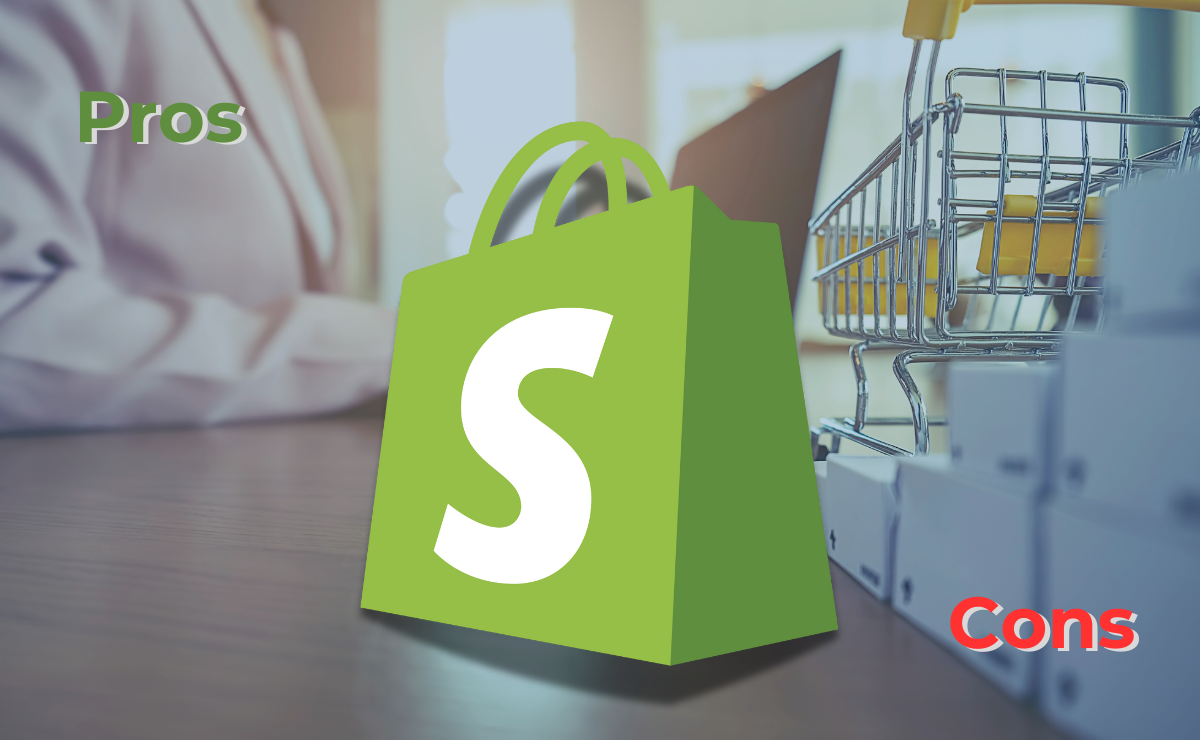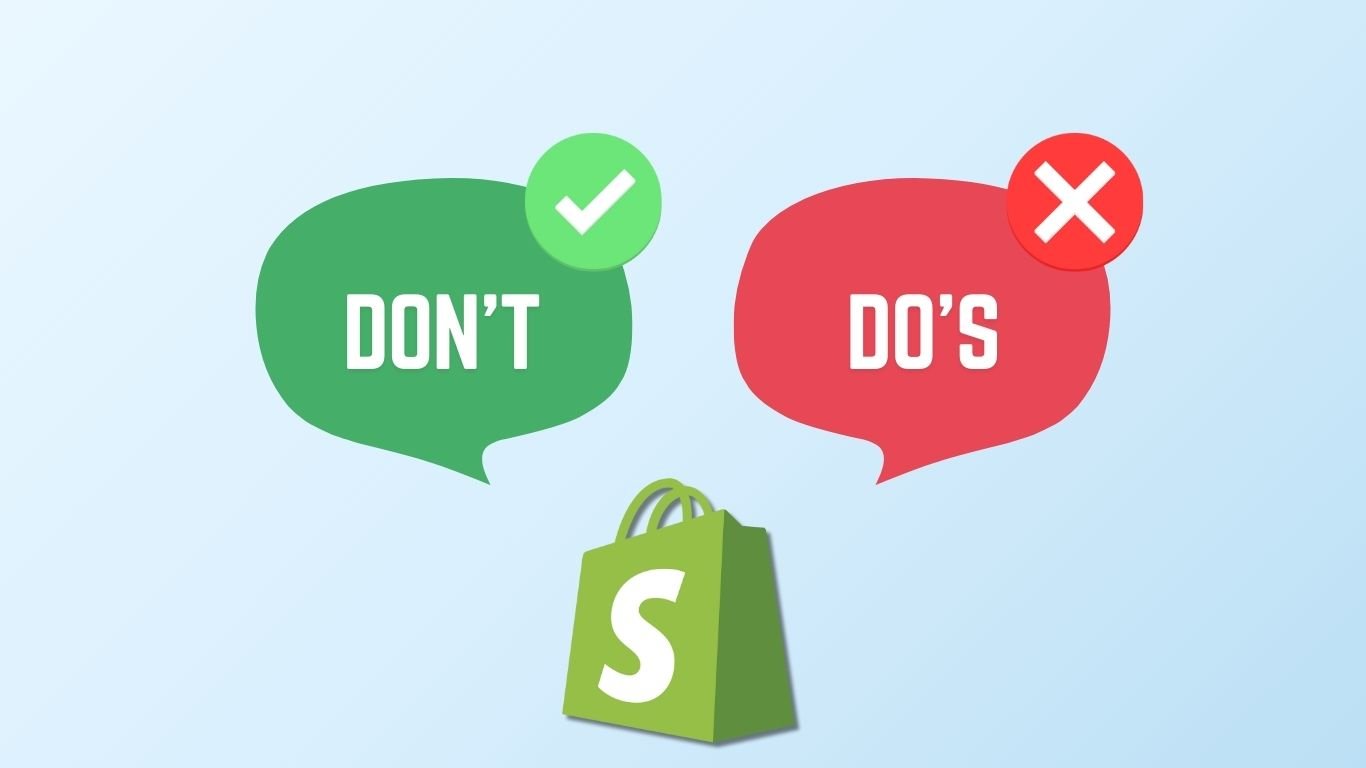
The Pros and Cons of Shopify for Your Ecommerce Business: Is It Right for You?
- 2025-01-18
-
0

The Shopify e-commerce business has become an increasingly popular business model in recent years. It allows entrepreneurs to start an online store without the need for inventory management or upfront costs. In this article, we will explore the pros and cons of Shopify e-commerce, as well as provide tips for success in this industry.
This retail fulfillment method works by allowing a store to sell products without keeping them in stock. Instead, when a customer places an order, the store purchases the item from a third-party supplier who ships it directly to the customer. As a result, the merchant never sees or handles the product.
The concept of selling products without holding inventory has been around for decades, but it has gained significant popularity with the rise of online platforms like Shopify. These platforms have made it easier than ever for entrepreneurs to start their own stores and connect with suppliers who can fulfill orders directly.
Pros of the Shopify Business
1. Low startup costs:
One of the biggest advantages of Shopify e-commerce is that it requires very little upfront investment. Unlike traditional retail businesses that require inventory and storage space, this model allows entrepreneurs to start their online stores with minimal costs. All you need is a computer and an internet connection to get started.
2. No inventory management:
With this business model, you don't have to worry about managing inventory or dealing with stockouts. Since you're not holding any physical products, you don’t need storage space or complex stock control systems. This frees up your time and resources to focus on other aspects of your business, such as marketing and customer service.
3. Flexibility in location and time:
Another advantage of Shopify e-commerce is that it offers flexibility in terms of location and time. Since everything is done online, you can run your business from anywhere in the world as long as you have an internet connection. Additionally, you have the freedom to set your own working hours and be your own boss.
4. Wide range of products to sell:
With this inventory-free business model, you have access to a vast range of products to offer. You can choose from thousands of suppliers and find items that align with your niche or target market. This flexibility allows you to cater to different customer preferences and expand your product offerings as your business grows.
5. Easy to set up and use:
Shopify, the leading e-commerce platform for this type of business, makes it incredibly easy to set up and run your online store. It provides a user-friendly interface, customizable themes, and a wide range of apps and integrations to enhance your store’s functionality. Even if you have no prior experience in online selling, you can quickly learn how to navigate the platform and start selling.
Cons of Shopify Business
1. High competition:
One of the biggest challenges of running a Shopify store with an inventory-free model is the high level of competition. Since it’s relatively easy to start this type of business, many entrepreneurs are entering the market, resulting in saturation. This means you’ll have to work harder to stand out and attract customers to your store.
2. Limited control over shipping and customer service:
In this model, you rely on suppliers to handle shipping and customer service. This gives you limited control over these crucial aspects of your business. If a supplier makes a mistake or delivers a low-quality product, it reflects poorly on your brand. Choosing reliable suppliers and maintaining clear communication with them is essential to ensure a positive customer experience.
3. Dependence on suppliers:
As a Shopify business owner, you're dependent on suppliers for product availability and fulfillment. If a supplier runs out of stock or goes out of business, it can disrupt your operations and lead to unhappy customers. It's crucial to establish strong relationships with reliable suppliers and have backup options in case any issues arise.
4. Risk of low-quality products:
Since you don't have control over the quality of the products you sell, there's a risk of receiving low-quality items from suppliers. This can damage your reputation and result in negative customer reviews. It's important to thoroughly vet suppliers and request samples before partnering with them to ensure that they meet your quality standards.
Advantages of Shopify Business
1. Low Startup Costs
One of the biggest advantages of running a Shopify business is the low startup costs involved. Unlike traditional retail businesses that require significant upfront investment in inventory and storage space, Shopify allows entrepreneurs to start their online stores with minimal costs.
With this model, you don't need to purchase inventory upfront or hold any physical products. Instead, you only pay for the items that have already been sold and shipped to customers. This eliminates the need for a large initial investment in stock, which can often be a major barrier to entry for aspiring entrepreneurs.
In addition to saving on inventory costs, Shopify also eliminates the need for storage space. Since you’re not holding physical products, you don’t need to rent or purchase a warehouse or store space. This further reduces your startup costs and allows you to focus your resources on other critical areas of your business, such as marketing and customer service.
When compared to traditional retail, the cost savings are substantial. A retail business typically requires upfront investment in stock and additional expenses for storage, which can be quite costly depending on the size and location.
2. No Inventory Management
Management. In traditional retail, keeping track of stock levels, reordering products, and dealing with stockouts or overstock can be both time-consuming and costly.
With Shopify, these challenges are handled by your suppliers. When a customer places an order in your store, the supplier fulfills it directly by shipping the product to the customer. This means you don’t need to worry about storage, packaging, or shipping logistics, freeing up your time to focus on growth and customer experience.
Not having to manage inventory allows you to focus on other aspects of your business, such as marketing, customer service, and building your brand. It also frees up your time and resources to experiment with different products and niches without the risk of being stuck with unsold inventory.
In addition to the time and cost savings, not having to manage inventory also reduces the risk of stockouts and overstock situations. Since you're not holding any physical products, you don't have to worry about running out of stock or being stuck with excess inventory. This allows you to be more agile and responsive to market demand.
Challenges of Shopify Business
1. High Competition
While a Shopify business offers many advantages, one of the biggest challenges is the high level of competition in the market. Because the barriers to entry are low and the model is so popular, many entrepreneurs are launching their own stores, which has led to a saturated marketplace.
To stand out in a crowded market, it's important to differentiate your brand and offer something unique to customers. This can be done through various strategies such as targeting a specific niche or demographic, offering personalized customer service, or providing value-added services or products.
Researching and analyzing the market is crucial for identifying gaps or opportunities that can set your business apart from competitors. By understanding customer needs and preferences, you can tailor your product offerings and marketing strategies to attract your target audience.
Building a strong brand is also essential for standing out in a crowded market. Your brand should have a clear identity and value proposition that resonates with your target audience. This can be achieved through consistent branding across all touchpoints, including your website design, product packaging, and customer communications.
Additionally, investing in marketing and advertising is crucial for driving traffic to your online store and attracting customers. This can be done through various channels such as social media advertising, search engine optimization, influencer marketing, and email marketing. By reaching your target audience effectively, you can increase brand awareness and generate sales.
2. Limited Control over Shipping and Customer Service
One of the downsides of Shopify Business is that you have limited control over shipping and customer service. Since you're relying on suppliers to handle these aspects of your business, it's important to choose reliable partners and communicate clearly with them to ensure a positive customer experience.
When it comes to shipping, it's important to work with suppliers who offer fast and reliable shipping options. Delayed or lost shipments can result in unhappy customers and negative reviews. It's also important to set clear expectations with customers regarding shipping times and provide tracking information so they can track their orders.
Customer service is another area where Shopify business owners may face limited control. Since order fulfillment and inquiries often depend on suppliers, it’s essential to establish clear communication channels with them. This includes providing detailed instructions on handling customer inquiries and ensuring they respond promptly and professionally.
Managing customer expectations is crucial for maintaining a positive reputation. Being transparent about shipping times, product quality, and potential issues helps minimize the risk of negative experiences and builds stronger trust with your audience.
Integration with Other Platforms
Shopify integrates seamlessly with other platforms, which can greatly enhance the functionality of your online business. By leveraging multiple integrations, you can streamline operations, expand your reach to a wider audience, and deliver a stronger overall customer experience.
For example, integrating Shopify with social media platforms like Facebook and Instagram allows you to sell products directly on these platforms. This can help you reach a larger audience and drive more traffic to your online store. Additionally, you can use social media advertising to target specific demographics and promote your products effectively.
Integrating Shopify with email marketing platforms like Mailchimp or Klaviyo allows you to automate your email marketing campaigns. This includes sending abandoned cart reminders, product recommendations, and promotional offers to your customers. By nurturing your email list, you can build customer loyalty and increase repeat purchases.
Another platform that can be integrated with Shopify is a customer relationship management (CRM) system. A CRM system allows you to manage customer data, track interactions, and provide personalized customer service. By having a centralized database of customer information, you can better understand their needs and preferences and tailor your marketing efforts accordingly.
By leveraging the power of multiple platforms, you can enhance the functionality of your online business and provide a seamless experience for your customers. It's important to choose platforms that align with your business goals and integrate well with Shopify to maximize the benefits.
Importance of Choosing the Right Products
Choosing the right products is crucial for success in Shopify business. The products you sell will determine your target market, profit margins, and overall business viability. It's important to conduct thorough research and analysis to identify profitable products that align with your niche or target audience.
When choosing products, it's important to consider factors such as market demand, competition, profit margins, and shipping costs. You want to select products that have a high demand but low competition to maximize your chances of success. Additionally, you want to ensure that the profit margins are sufficient to cover your expenses and generate a profit.
It's also important to consider the shipping costs associated with the products you choose. Some products may have higher shipping costs due to their size or weight, which can eat into your profit margins. It's important to factor in these costs when pricing your products and ensure that they are competitive in the market.
Another factor to consider when choosing products is the potential for upselling or cross-selling. Upselling involves offering a higher-priced version of a product or additional features or accessories. Cross-selling involves offering complementary products that go well with the main product. By incorporating upselling and cross-selling strategies, you can increase your average order value and generate more revenue.
Additionally, it's important to choose products that align with your brand and target audience. Your products should reflect the values and preferences of your target market and provide a solution to their needs or problems. By understanding your customers' pain points and desires, you can select products that resonate with them and build a loyal customer base.
Tips for Success in The Shopify Business
While running a Shopify business offers many advantages, achieving success in this field requires strategic planning, thorough research, and consistent execution. Here are some practical tips to help you thrive in your Shopify business:
1. Research and analyze the market
Before launching your store, it’s crucial to conduct in-depth market research. This involves identifying profitable niches, understanding customer preferences, and analyzing competitors. By gathering these insights, you can uncover market gaps and opportunities that will give your business a competitive edge.
2. Build a strong brand and customer base: Building a strong brand is crucial for success in your Shopify business. Your brand should have a clear identity and value proposition that resonates with your target audience. This can be achieved through consistent branding across all touchpoints, including your website design, product packaging, and customer communications. Additionally, focusing on providing excellent customer service can help you build a loyal customer base and generate repeat purchases.
3. Optimize product listings and website design: Your product listings and website design play a crucial role in attracting customers and driving sales. It's important to optimize your product listings with compelling descriptions, high-quality images, and clear pricing information. Additionally, your website design should be user-friendly, visually appealing, and optimized for mobile devices. By providing a seamless and enjoyable shopping experience, you can increase conversions and customer satisfaction.
4. Provide excellent customer service: Customer service is a key differentiator in the Shopify business. Since you have limited control over shipping and fulfillment, it's important to choose reliable suppliers and communicate clearly with them. Additionally, being responsive to customer inquiries and resolving any issues or complaints promptly will help you build trust with your customers and generate positive reviews and referrals.
Is Shopify Business Right for You?
In conclusion, a Shopify business offers many advantages for aspiring entrepreneurs looking to start an online store. The low startup costs, no inventory management, and flexibility in location and time make it an attractive business model. However, there are also challenges to consider, such as high competition and limited control over shipping and customer service.
When deciding if a Shopify business is right for you, it's important to consider factors such as your budget, skills, and goals. Running a Shopify business requires dedication, hard work, and continuous learning to succeed. It's important to be prepared for the challenges that may arise and have a plan in place to overcome them.
If you're willing to put in the effort and adapt to the ever-changing e-commerce landscape, a Shopify business can be a rewarding opportunity. By choosing the right products, building a strong brand, optimizing your operations, and providing excellent customer service, you can increase your chances of success in this industry. Additionally, staying up to date with the latest marketing strategies and trends, such as social media advertising and influencer partnerships, can help you reach a wider audience and drive more sales. It's important to constantly analyze and adjust your strategies based on customer feedback and market research to stay competitive in the fast-paced world of e-commerce. With dedication and perseverance, a Shopify business can offer a lucrative and fulfilling business venture.
like?









